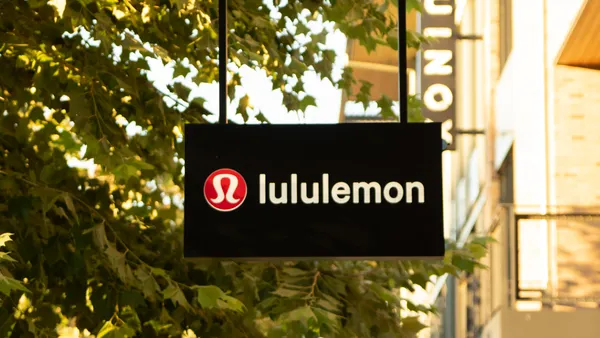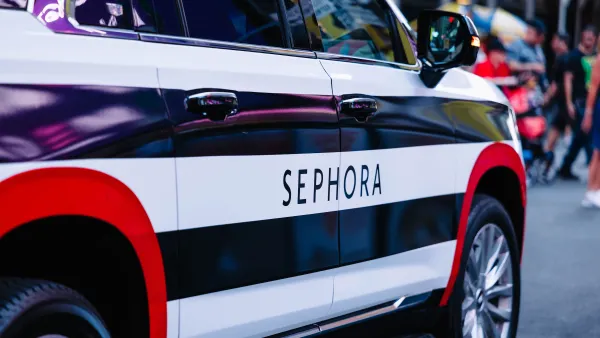Dive Brief:
-
Victoria's Secret is close to registering a trademark for the expression "First Love" for a new line of personal care products, according to filings at the United States Patent and Trademark Office.
-
The brand first filed for the trademark last October, but on Feb. 26 this year that was opposed, according to the notices. Yet another notice shows that permission to use the trademark was granted on April 23. Victoria's Secret must now pay the associated fees and actually use the phrase for the trademark to be officially registered, according to the USPTO. (A second application to use the trademark for apparel and lingerie did not advance.)
-
The October and February documents were first spotted by Women's Wear Daily, which noted that longtime L Brands marketing chief Edward Razek, in an interview with Vogue last year, employed the phrase "first love" to push back against upstart rival ThirdLove.
Dive Insight:
As WWD speculates, the skirmish at the patent and trademark office could be a continuation of the heated battle between Victoria's Secret and online lingerie startup ThirdLove.
Victoria's Secret didn't immediately respond to Retail Dive's request for comment. ThirdLove didn't respond to Retail Dive's question of whether it was the entity that challenged the "first love" trademark application, but instead referred to its full-page ad in a Sunday edition of the New York Times last year, an open letter to its larger rival challenging the highly sexualized marketing that has long been Victoria's Secret's stock in trade.
"You market to men and sell a male fantasy to women," the letter reads in part. "Your show may be a 'fantasy' but we live in reality. Our reality is that women wear bras in real life as they go to work, breastfeed their children, play sports, care for ailing parents, and serve their country."
"ThirdLove is the antithesis of Victoria's Secret," the letter also reads.
Razek was having none of that, telling Vogue at the time, "[W]e're nobody's third love. We're their first love. And Victoria's Secret has been women's first love from the beginning."
That may be true for many women to some extent, but ThirdLove co-Founder and co-CEO Heidi Zak has been clear that her experience with the L Brands label is what prompted her to produce a new kind of lingerie, predicated on the notion that women shouldn't have to choose between "sexy and comfortable" or be subjected to marketing built upon the male gaze.
Whatever the facts are around the inspiration behind Victoria's Secret's attempts to trademark "first love" — which, according to filings, the company initially wanted to use on a line of personal care products including body wash, creams, fragrances, bath products and lip care, as well as apparel and lingerie — any brand evolution from its sexualized marketing seems distant, despite clear indications that is falling out of favor among shoppers and to some extent Wall Street.
Moody's Investors Service last month, for example, downgraded L Brand's outlook from "stable" to "negative," in part on concerns that Victoria's Secret's sales and profit "trends may remain weak," and that the company can ill afford any downward movement from its so far well performing Bath & Body Works unit. In March, activist investor Barington Capital criticized L Brands' failure to bring Victoria's Secret's merchandising and marketing up to date as bad for business.
L Brands pushed back on that, asserting in its reply that it "has made significant changes in its business to focus resources on core categories to enhance performance and accelerate growth," including offloading Henri Bendel and La Senza, and making management changes, among other moves.
Victoria's Secret remains the market leader by far, but sales are suffering. The brand did $2.5 billion in sales in the fourth quarter, which actually overshadowed the Bath & Body Works operations that are garnering praise. But comps declined 3%, compared to the 12% rise at Bath & Body Works. Stores are part of the problem: Taking out direct-to-consumer sales, store comps at Victoria's Secret fell 7% (as Bath & Body Works store comps rose 8%). It's no surprise that the company recently announced the closure of 53 underperforming Victoria's Secret stores, after closing 30 last year.














